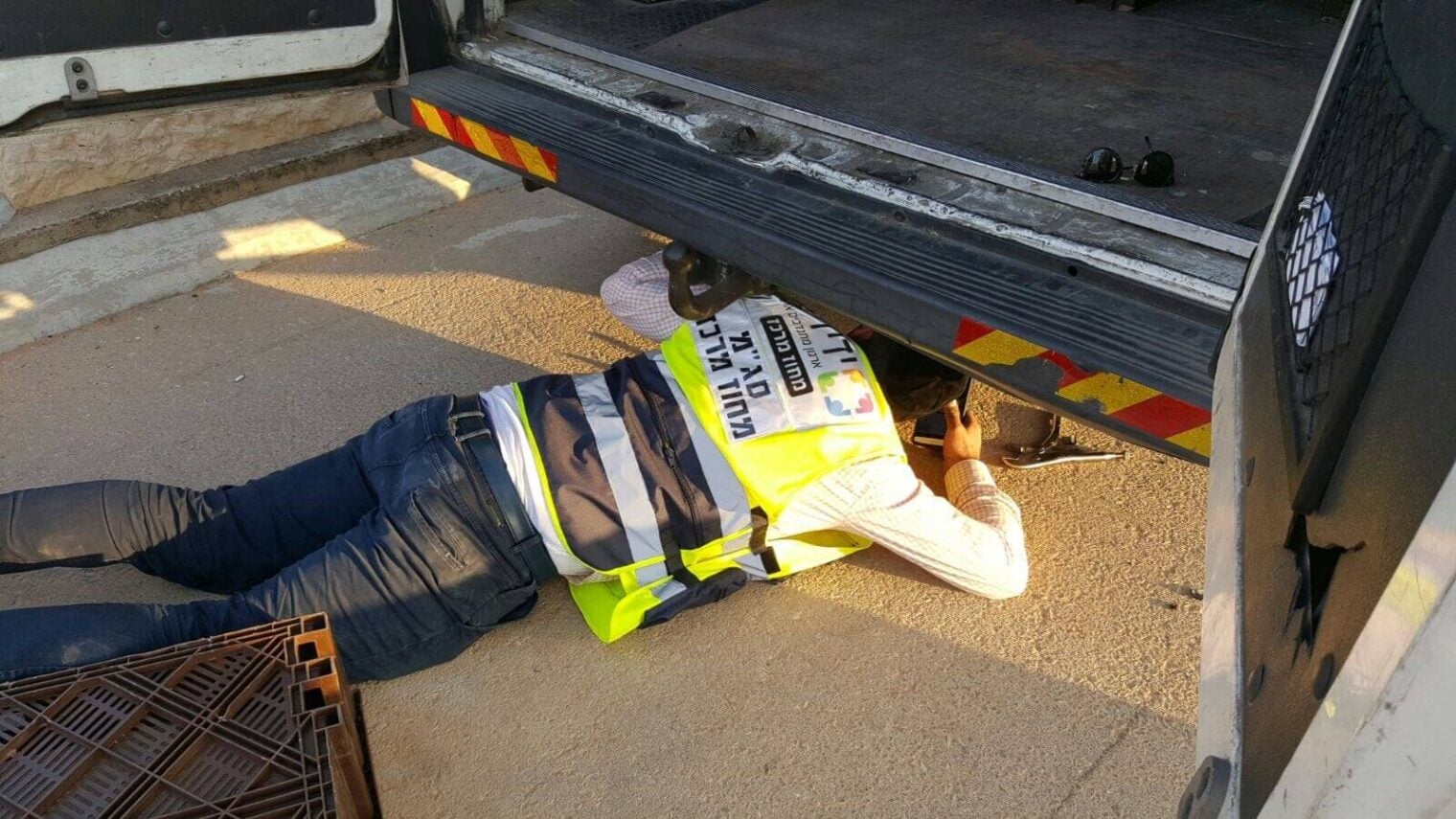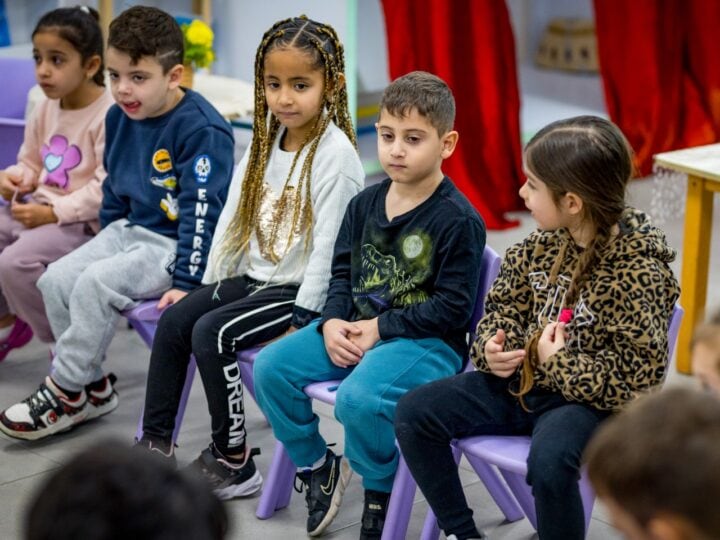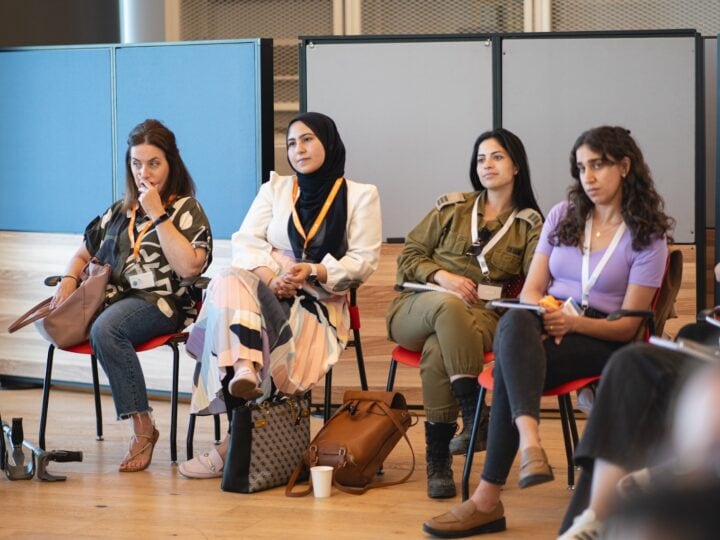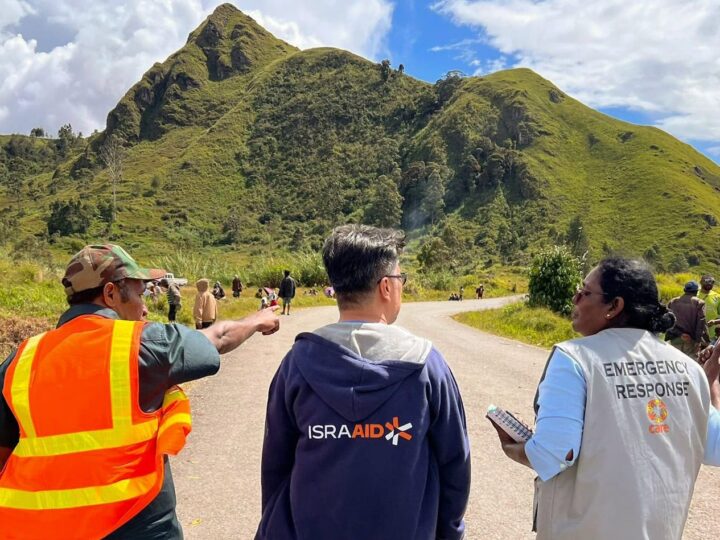A plate piled high with freshly made French toast had just been placed on the breakfast table when the call came at 8.30am on that Shabbat morning.
My son’s commander was on the line to tell him “there was something going on” and to report to base immediately.
It also happened to be the first weekend Yoel and his girlfriend, Topaz, were spending in their new home in the Golan Heights and they scrambled around to find his army uniform in one of the unpacked boxes.
Yoel and Topaz then took off in their separate cars for the 2.5-hour ride back to the center of the country. Topaz headed for her parents’ home while Yoel rushed to the Eitan base at Bilu Junction, near Rehovot.
Like thousands of reserve soldiers called to service on that day, Yoel left his car on a sandy embankment outside the base as the parking lot was already jam packed. The keys were left in a small kit bag, which his logistics officer put in a storage space (yamach) for reservists’ gear during war.
And there the keys stayed for the next 80 days, as Yoel did his brave duty.
A few weeks later, at the end of a rare 24-hour furlough, Topaz and I drove Yoel back to Bilu Junction, where he could catch a ride back to where his unit was now stationed.
The sight of the haphazardly parked cars, which trailed for a kilometer or more, was a stark reminder of the sheer number of fathers, wives, sons and daughters who had received orders to report for duty that morning and left their families, businesses, jobs and lives to defend our country.
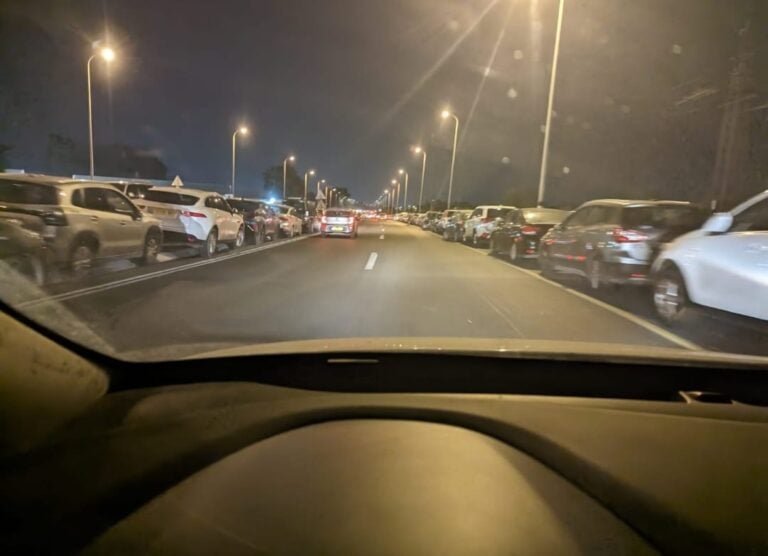
My mind also turned to practical matters. I asked Yoel if we could possibly get his bag from storage and drive the car back home before the battery ran dead.
With other things on his mind and jittery about not missing his ride, Yoel said even if he wanted to, there was no one to hand over his car keys.
Six weeks later
At the end of December, Yoel was finally released from what he termed “the first stage” of his service as he had to undergo a minor operation.
After recuperating, he finally went to pick up his car. It was in place, just a lot dustier and with a flat tire and dead battery.
His commander suggested calling Yedidim (Friends), the volunteer organization for road assistance. In 20 minutes, someone arrived with a portable battery charger and Yoel was able to drive to the nearest gas station.
“I was really appreciative of that young guy who arrived so quickly to help me. It felt good to have freedom again after weeks of relying on public transport, friends and family to get me back home for those precious hours off,” Yoel recalls.
Get Cars Back Home
Yisrael Almasi, founder and CEO of Yedidim, remembers well his first thought after seeing hundreds of cars parked on the side of the road outside army bases post October 7.
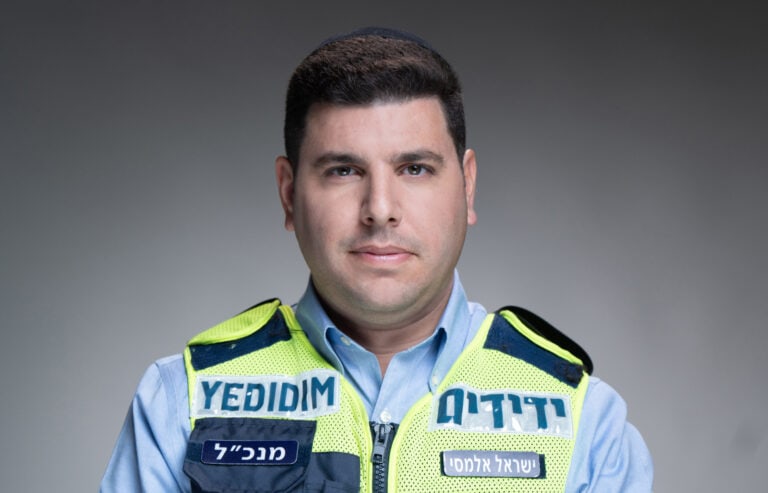
“I said to myself that it can’t be like this. While husbands and fathers are fighting, these cars are surely needed back home,” he tells ISRAEL21c.
The organization immediately launched the Mahzirim rehavim le’batim (Get Cars Back Home) project, which has helped get thousands of cars returned to the families of reservist soldiers.
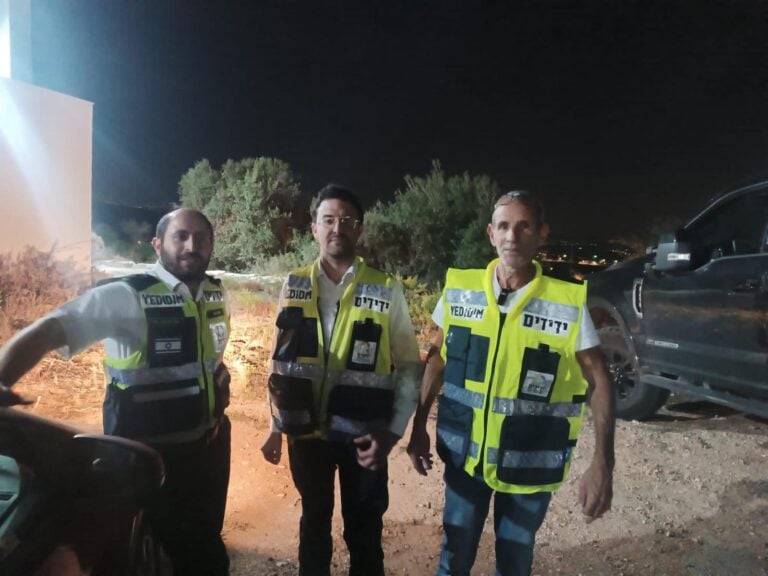
The logistical complications are immense, as Almasi explains: “Keys are not always on hand and spare keys have to be fetched from homes sometimes on the other side of the country from where the car is located. Also, two volunteers have to be dispatched so that one can drive the car to its destination and be transported back.”
Still, he says, these challenges are unimportant when weighed against the ability to “strengthen both those on the front and at home during these challenging days.”
Angels on the road
Almasi, 38, a father of four from Givat Shmuel, who won the President’s Award in 2021, came up with the idea for Yedidim when his car got stuck one rainy, winter day and no-one stopped to help him.
“At first, I was very disappointed and angry as I saw that so many people could have helped me,” he recalls.
Soon after, he opened a WhatsApp group and realized that this was not true and many people would be willing to lend a hand in such a situation — today, in fact, 65,000 of them, making Yedidim the biggest volunteer organization in the country.
Volunteers range in age from 16 to 89 and all undergo a training course on car maintenance. There are no paid employees in the nonprofit group, including Almasi, whose day job is as a project manager at a credit-card company.
Volunteers and the 2,000 to 3,000 callers who ask for assistance daily come from all sectors of the population.
“Arabs, Christians, Jews, religious or secular, we succeed in a time of the worst catastrophe to close the gaps and unite people in helping each other,” Almasi says with pride.
For more information on Yedidim, click here.




